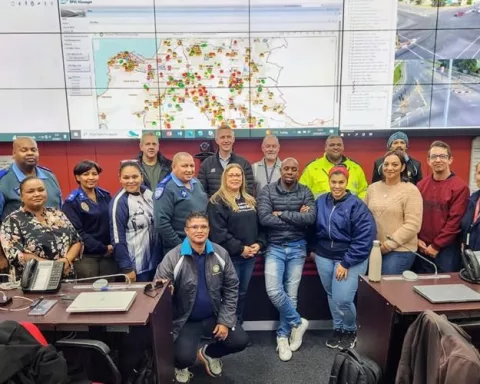In the face of adversity, unity and resilience are key to overcoming challenges. South African Minister for Social Development, Lindiwe Zulu, highlights the crucial partnership between the government and interfaith leaders in working towards the welfare of the South African people.
A gathering at the Birchwood Hotel in Boksburg, Ekurhuleni, convened distinguished government officials such as Deputy President Paul Mashatile and Premier of Gauteng Province Panyaza Lesufi, together with leaders representing diverse faiths like Christianity, Islam, Judaism, Hinduism, and Buddhism. The primary focus was the welfare of South Africa’s people, with Minister Zulu declaring, “South Africa is its people, and her people need our attention.”
Drawing inspiration from ancient Roman poet Virgil, Minister Zulu stressed the significance of comprehending the root causes of societal problems to effectively address them. In a world where various religious teachings have guided humanity for thousands of years, the government and faith leaders have a shared objective: to foster resilience and prosperity within families. By strengthening the values that encourage moral revitalization and societal rebuilding, the government and interfaith leaders are joining forces to enhance the lives of South African families.
Addressing Key Social Issues
To confront the numerous social problems affecting families, Minister Zulu outlined a series of focus areas, which included fatherless families, child vulnerability, substance abuse, gender-based violence and femicide, hunger and malnutrition, poor health and educational outcomes, and poverty, unemployment, and inequality. By tackling these issues at the family level, the government and faith leaders aim to develop strong and prosperous communities.
Religious centers serve as focal points for reinforcing values, moral regeneration, and social reconstruction. Consequently, the government and interfaith leaders are collaborating to implement Social Development programs within families and communities. This partnership represents a shared belief in the power of faith and unity to drive positive change, as Minister Zulu asserted, “This partnership is the incarnation and embodiment of things hoped for and the revitalization of our mutual reassurances towards the realization of things that the people hope to encounter in their lives.”
The biblical verse Matthew 25:13 states, “So stay awake, because you don’t know the day or the hour.” This passage serves as a reminder of the urgency and necessity for ongoing collaboration between the government and interfaith communities in advocating for the well-being of South African families. Minister Zulu expressed confidence that the robust discussions and insights from interfaith leaders would strengthen their shared resolve and cultivate collaborations that would yield tangible benefits for families.
A Brighter Future for South African Families
The combined efforts of the government and faith leaders signify a renewed dedication to addressing the various challenges faced by South African families. By promoting resilience, dignity, and prosperity, they are working in unison to build a brighter future for the nation’s population.








